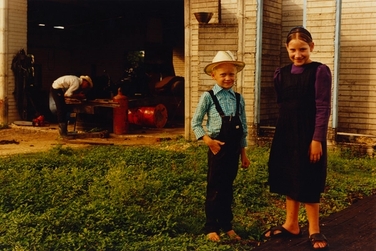
We enter a holy world. A world without immorality, jealousy, hatred and violence. Golden light stretches over the fruitful land. Countless acres of corn, beans and soy lay in front of us. They are farmed by the Mennonites, a religious community in Central America, Belize.
Originating in Central Europe and Holland in the 16th century, the Mennonite Church became global when the first settlements established in the early 18th century in North America, followed by arrivals of the communities in Central and South America. Today settlements reach until Asia and Africa. Likewise to the Amish, the Mennonites are followers of the Anabaptist movement. One of the main reason for their early banishment from Europe was their pacific, nonviolent approach to life, exercising resistance to military service and nationalistic practices. Their belief developed unique ideas of the church, the state and society, the practice of these ideas varies from community to community.
Subject to this text is the particular community of Little Belize, where the use of electricity and modern technology is restricted. Core values are formed by a communal conscious, strong familial structures and a tolerant religious practice. They are a hardworking community, cultivating multiple thousand acres of land.
„I know I’ll be working until I die. All of us are. We work in order to live. And we live in order to work. It’s a simple life“. Visiting the community in Little Belize, we speak to Jacob Schmitt, father of twenty children and a farmer for his entire life. What is striking while talking to Jacob, is the calm and wit with which he is leading the conversation. „Why would you need a legal system or an executive if you can live peacefully within your community?“ Coming from a modern society of today one can think of a multitude of arguments to contradict his provocative question. The size difference between a small, simple society like the one of the Mennonites, and a modern developed society alone explains why in a modern society, legal system and executive are needed to maintain order and functionality. Mechanisms are established in order to transform outliers „drop outs“ of society into law abiding, tax paying citizen again. In a small society like the one of the Mennonites, fetihs (Fehden) and disputes can be solved among families, there is no need for lawyers, advocates and a complex legal framework. The structures of society are different.
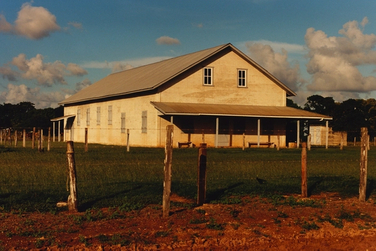

Members of a society like the Mennonites are dependent ontheir society to function. Therefore sustaining the equilibrium of their group structures, lays within everyone’s interest, which is why there is a high level of solidarity among group members.
French philosopher and sociologist Èmile Durkheim is author of a social theory that proposes to analyze societies according to their structural construction. In doing so, Durkheim distinguishes between simple and modern societies. Simple societies equal traditional societies, which are homogenous, constituted by the same moral ideas, core values and religious beliefs. This theoretical thought is evident in the Mennonite society, where social norms are strong and social behavior well regulated. Their society is ruled ruled by collective consciousness, that is designedby their religious belief. According to Durkheim, values, norms and rules are critical to a functional society. This function can be achieved by religion, which is why Durkheim defines religion as a fundamental element of social life (see Emile Durkheim 1912: Elementary Forms of Religious Life): Religious observance maintains and revitalizes the social heritage of a group and helps transmit its enduring values to future generations. Finally religion has an euphoric function in that it serves to counteract feelings of frustration and loss of faith and certitude by reestablishing the believer’s sense of well-being, their sense of the essential rightness of the moral world of which they are part of. On the most general plate, religion as a social institution serves to give meaning to man’s existential predicaments by tying the individual to a supra-individual sphere of transcendent values which is ultimately rooted in his society.






The Mennonite Community is a demonstrating example of religion functioning as a form of education and set of rules. „You can do what you want, as long as you do what you’ve been taught“. Jacob’s statement relates to the framework that religion creates for the society of the Mennonites. Children go to school until the age of 13, most of their education is based on the bible. General subjects like history and geography are not part of the curriculum. Education in school is limited to what is relevant to the members of the group, which automatically creates a different reality than people in a modern society have. Individuals in a modern society have free access to information, which provides them with an incomparable level of freedom. A small society, especially as original as the Mennonite Society, only seems to work because of its limited and controlled reality.
Durkheim was one of the first thinkers in the Western tradition to examine how an individual’s social milieu affects the way that individuals perceive the world. His sociology of knowledge (see Emile Durkheim Pragmatisme et sociologie. Paris: Vrin, 1955.) argues that many facets of an individual’s thought and conception of the world are influenced by society. While a logical structure helps to order and interpret the world, ensuring that individuals have a more or less homogenous understanding of the world and how it operates, the knowledge within a society affects the members of the social group. Looking at the Mennonite society, their perception of the world can be understood through Durkheim’s theory, that the representation of reality („représentations collectives“) is a result of an interaction between the external world and the society; things are infused with elements of a society’s collective experience, providing those things with a meaning and value. This representation of reality therefore embodies and expresses the reality of a society’s collective existence.



Speaking to members of the Mennonite Community in Little Belize, revealed a reality, in which the knowledge about the existence of other countries was of no importance. Neither France, or Europe, or the Atlantic Ocean would be a term to Gerhard Redicop, a farmer in Little Belize, neither to the teacher of the community. Even asking about their religion and belief would be answered by an insecure shaking of the head. But how would one define his own belief, if he does not know any different. We are only able to define something, when we know it’s opposites, differences and alternatives. Because we know of Christianity, Buddhism, the Islam… Within their society there only exists one religion, one reality, one truth, which is not to be questioned or compared to anything else. This lack of knowledge works in favor of sustaining this particular form of religious community.
Another factor that acts as a coherent force of a small society as the one of the Mennonites, which explains why a community that particular can persist in the modern world of today, can be explained on the basis of Emile Durkheim’s theory on division of labor.
In his publication „De la division du travail social: étude sur l'organisation des sociétés supérieures, 1893“, Durkheim differentiates between two forms of society, characterized by the form of solidarity between the members of society.
Durkheim differentiates between „primitive“ and „complex“ societies. Depending on a certain level of social differentiation; in a primitive (simple) society, certain functions are carried out by a certain group. They are segmented, which means that the society is divided in equal segments, which can appear in form of families, clans or tribes. Each of them forms a little society within the bigger society (Durkheim 1893: 279). These segments function more or less independently from each other. What holds these little segments together as a society nevertheless, is a phenomenon that Durkheim describes as „mechanic solidarity“. Mechanical solidarity occurs when individuals within structural units are alike and self-sufficient. While Durkheim names traditional societies as examples, his theoretical framework can be amended on the Mennonite society; people grown their own food, make their own clothes and rely little on others for their daily needs. The normative and cognitive orientation of each member is similar, as it grow within the same frame of experiences of the „little society“. Therefore their actions are very similar.
Durkheim illustrated this with a physics example: all molecules, which are part of a certain matter, like gas, are held together by the laws of the superior total, (without having a self-will themselves).




The consciousness of such mechanic solidarity is based on the assumption of homogenous particles, which build a common conception, because of their similarities. Which means they act and live so similar, that their social Welt is constructed by shared values, thoughts and ideas, which result from them living together.
Durkheim recognized that factors like increased communication, transportation and interaction with others resulted in a social change from a mechanical solidarity to an organic one.
The extension of mechanical solidarity, the solidarity within a complex society, he calls „organic solidarity“. It is present in modern societies, which consist of a complex mix of beliefs and backgrounds among its members. This shift from a traditional to a modern form of society is mainly evoked by the division of labor. The term implies that humans work in particular, socialized fields, rather than all in the same sector. Each individual has a special function, a sphere of action which is peculiar to himself. While the excise of man’s occupation still confirms to practices and usages of society, they are not completely controlled by society. Division of labor leaves much more place open for the free play of human initiative. As each of its elements has more freedom of movement, the individuality of all grows at the same time as of its parts and society becomes more capable of collective movement. At the same time each member depends much more on its society the more labour is divided; each activity is much more personal as it is more specialized, which creates a high level of interdependence between each skill-excercising individual. Within such society the solidarity between each organs is as great as the unity of the organism. Because of this analogy, Emile Durkheim called the solidarity in modern societies, (which is due to the division of labor), organic.
A practical example of this definition of solidarity within a modern society would be the global enmeshment between modern societies and their energy supplies. European Cities of today depend on the fossil fuel supply of Russia, of the imports of China, on friendly political relations with the United States of America: Economical expansion and free market has led to a even higher level of interdependences. The phenomenon reaches down until the dependence of an individual city citizen who is dependent of a functioning electricity supply, the produce of food, the supply of oil for transportation, the bank for financial stability. Our system of today is build so complex, that it is very sensible to any change or malfunction.
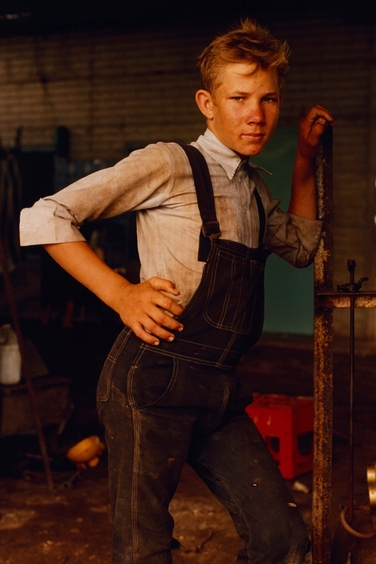


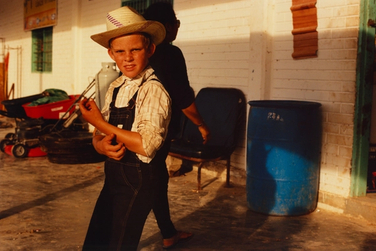
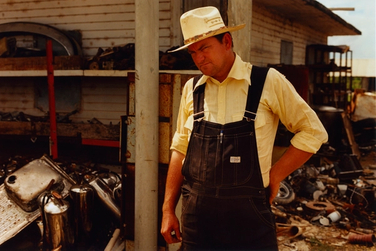
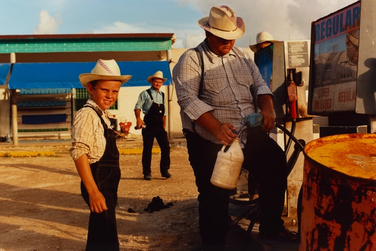

Georg Simmel, german philosopher of the … century, published an article called the „mental life of the Metropolis“ will serve as a main reference for this text, outs it appropriately:
„If all the watches in Berlin suddenly went wrong in different ways even only as much as an hour, its entire economic and commercial life would be derailed for some time“ (p.?)
The intertwinement of the time of … has only increased and carried on to strengthen. Our today’s society show a high level of dependency and vulnerability of our life due to its complexity; We are highly dependent of not only the punctuality, but the promises and performances of every member of the society responsible for his task, to not let the whole break down into an inextricable chaos. This dependency on production and services is mirrored in the social relations between citizens of the metropolis: „The relationships and concerns of the typical metropolitan resident are so manifold and complex that, especially as a result of that agglomeration of so many persons with such differentiated interests, their relationships and activities intertwine with one another into a many membered organism“.

